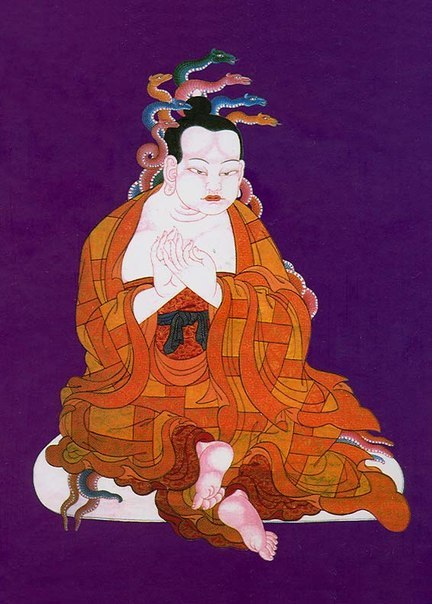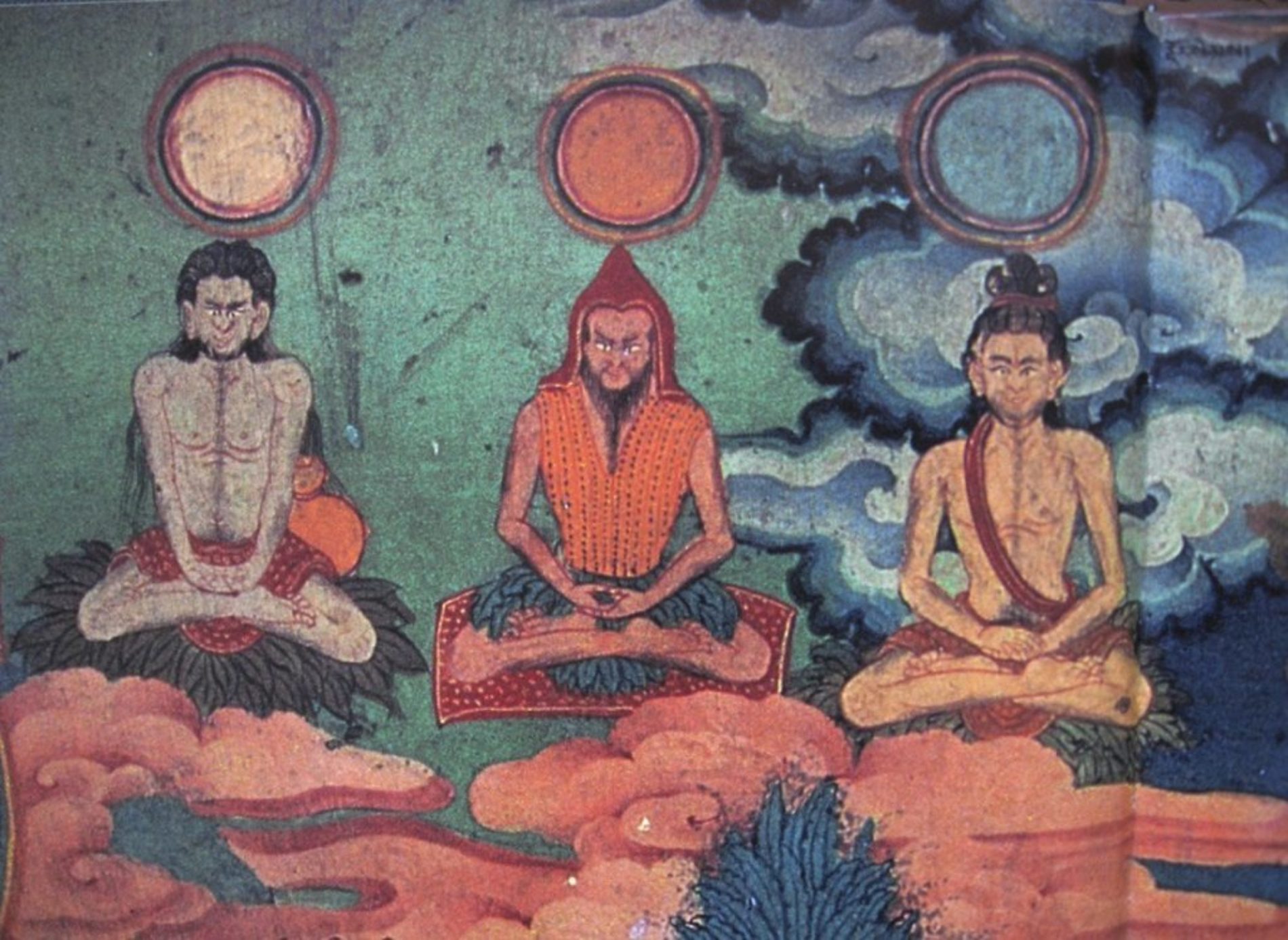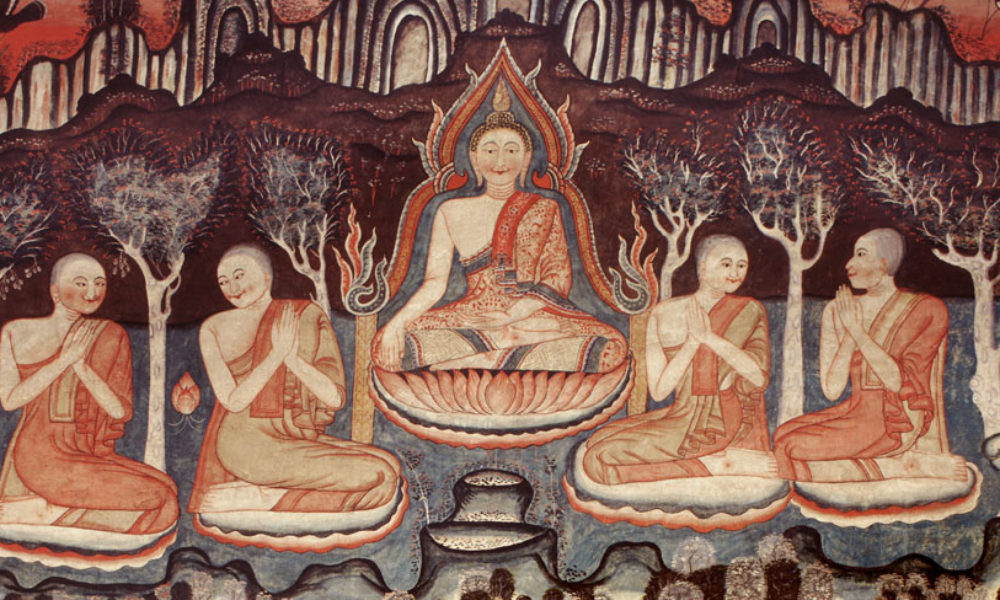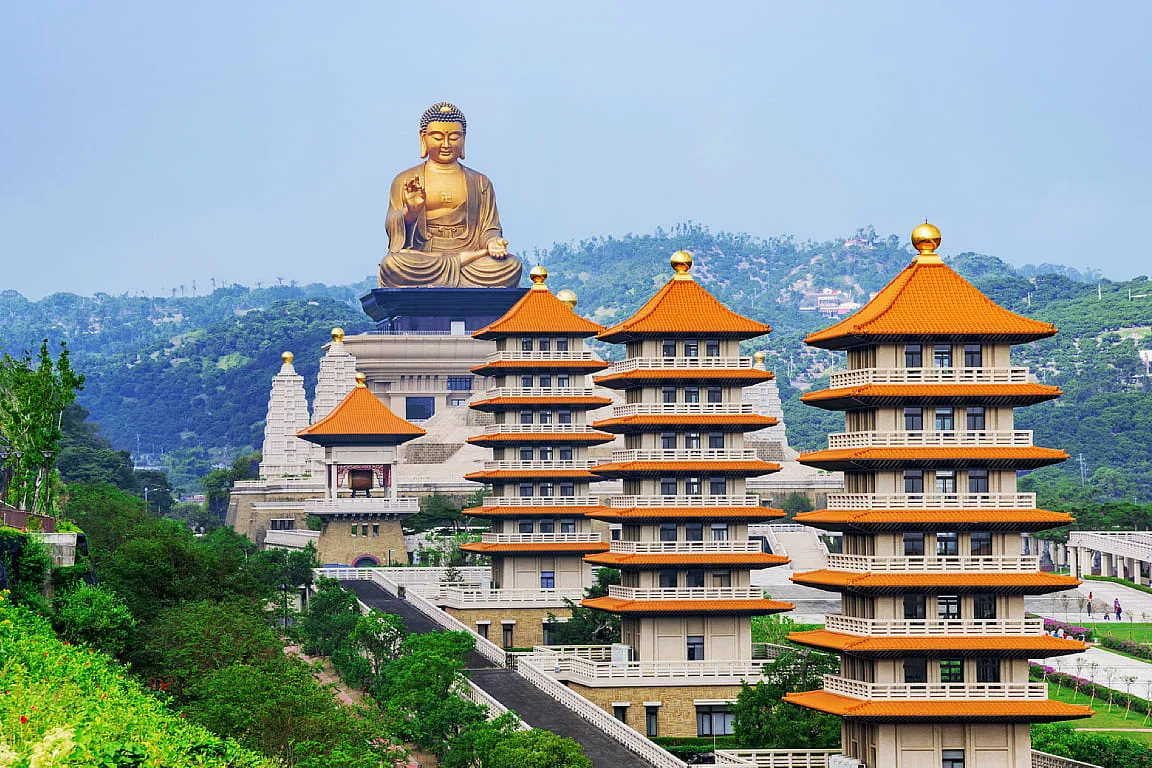Madhyamaka is “the school of the Middle Way.”
Main texts:
The Wisdom Sutras – forty texts collected under the title Prajnaparamita (Perfection of Wisdom) Sutra.
Founder of Madhyamaka school is Nagarjuna. Nagarjuna’s principal contribution to Buddhism was his systematization of the sutras’ teachings and focus on Emptiness (“Sunyata”).
Emptiness is a deepening of the doctrine of anatman or no-self. In explaining Emptiness, Nagarjuna argued that phenomena have no inherent existence in themselves. Because all phenomena are conditionally created by other phenomena, they have no existence of their own and are empty of a permanent unchanging self. Thus, there is neither reality, not not-reality.
Madhyamikas assert the duality of mental and physical phenomena. However, according to the Buddhist tantric view adopted by the Dalai Lama and most other Tibetan Buddhists, this duality is not as radical as the duality of sentient and nonsentient entities.
The reason for this is that all mental events fundamentally stem from the “very subtle energy-mind”, which is a primordial reality having both physical and cognitive attributes. The physical world, too, is said to be a creative display of this same energy-mind. Thus, according to the Vajrayana, the conventional dualism of mind and matter is based upon a fundamental monism.
The connections between mind and appearances from the point of view of their non-duality neither can be established as existing on its own, separately from the other. Both exist beyond words and concepts because neither exists as findable objects inside the box-like categories that correspond to terms or concepts.
“The causes of bad karma are ignorance,” my father told me. “Ignorance is not realizing the true nature of reality; it is not realizing no-self, emptiness, or the nature of mind. If ignorance remains, then duality remains, concepts remain, and negativity gets stuck. This is samsara, the ways that we cling to false notions of reality; and when we function from our misperceptions and cling to them, we continue to create suffering for ourselves and others.”
From the book Turning Confusion into Clarity by Yongey Mingyur Rinpoche




